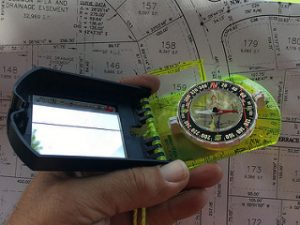 Happy week, agency leader. Having a shared perspective with your boss in your new job is important. But in the agency business? It’s two times the challenge. Because in most situations, you’re learning about your new agency boss AND the client. Who’s not your boss, yet pays the bills and has influence on your career. Today’s post will summarize Chapter Four — Negotiate Success — of the well-known onboarding bible, The First 90 Days. And like other posts, you’ll also read a bit of agency context. Handy bits are here even if you don’t have a new job, but have a new client.
Happy week, agency leader. Having a shared perspective with your boss in your new job is important. But in the agency business? It’s two times the challenge. Because in most situations, you’re learning about your new agency boss AND the client. Who’s not your boss, yet pays the bills and has influence on your career. Today’s post will summarize Chapter Four — Negotiate Success — of the well-known onboarding bible, The First 90 Days. And like other posts, you’ll also read a bit of agency context. Handy bits are here even if you don’t have a new job, but have a new client.
The chapter title alone speaks volumes. Because “negotiate” suggests you won’t get everything you want. And who doesn’t like success?
Negotiating ad agency job success: fundamental do’s and don’ts
Building a productive relationship with your boss and your client can be made easier when you consider these basics:
- Don’t stay away
- Don’t surprise your boss
- Don’t approach your boss or your client only with problems
- Don’t run down your status checklist
- Don’t expect either party to change
- Clarify expectations early and often
- Take 100% responsibility for making the relationship work
- Negotiate time lines for diagnosis and action planning
- Aim for early wins important to the boss and the client
- Pursue good marks from those whose opinions the stakeholders respect
Head-nod stuff, right? Having worked with clients, prospective clients and agencies for <cough> years, what I’d add here is to understand the personalities involved. And while I encourage you to be you (always), understand who these people are as human beings…< insert your favorite personality test methodology here >. And act accordingly.
For many years, yours truly helped agencies find and win new business. Beyond solving a brand problem, a big part of winning a pitch is understanding prospective client personalities. And then using that insight to shape pitch content and context.
Defining your success in your new job is very similar. It will also help you figure out your five conversations.
The five conversations
Michael Watkins suggests there are five subject areas you’ll want to cover in your first few months in the job. Here are those areas, listed in a logical order:
- Situation. What’s the STARs situation? How did the agency get here? What makes this a challenge?
- Expectations. What does your boss need to do in the short term? How will your performance be measured?
- Resources. What do you need to do to be successful? What do you need your boss to do?
- Style. How will you and the boss/client interact moving forward? Talking? Email? Text? How much? Which decisions need sign-off?
- Personal Development. After a bit, you can ask about what’s working. And what’s not. Are there special projects you can take on?
This doesn’t mean five different meetings. You may want to combine a couple of subjects in one meeting, for instance. Or it might take multiple meetings to cover one area. Your mileage will vary. You should also expect that over time, your shared understanding of these areas may change.
These crucial areas and the accompanying dialogue with your boss builds your relationship and sets you, your client and the agency up for success.
The author goes into detail in each these areas listed above. From a real-world agency perspective, two areas leap out: expectations and resources.
Often, boss and client expectations may be unrealistically high. That can be messy, right? I suggest it’s on you, dear reader, to help educate and inform. With facts. Not opinions. While I’m sure you’re brilliant — you’re being paid to think, after all… Depending on the situation, I turn to relevant facts from outside resources like known & proven experts and trade associations to change hearts and minds.
And in the resource-starved world that is agency life, the resources available to you are probably going to be less than ideal. Good thing you’re smart, nimble and creative. And realize that resources and expectations need to be linked. And negotiated.
An extra thought or two
While the author doesn’t go there, I wonder if there isn’t some value for you in capturing a few things when you start this new gig: what made you both happy and unhappy at your last job and what you now know about this new position.
Without proverbially jumping on a therapist’s couch with you, I’m getting at the gooey and unbusinesslike emotional and mental stuff everyone experiences. The kinda stuff that keeps you engaged, happy and productive at your job. Just suggesting it’s smart to jot this kind of thing down and then take a look at that in a few months to see what’s changed. How and why did things change? It is good? Bad? What can be learned from this as you move forward?
The people I’ve seen rise in their companies often take the lead on projects related, but not part of their current job responsibilities. In the agency world, one of the easiest ways to contribute is through new business. And there are lots of ways you can contribute, regardless of your discipline:
- identifying smart agency growth strategies
- (keeping an eye on brands that are good agency fits)
- (researching agency prospects (both in terms of the decision-makers and the brand challenges)
- keeping tabs on the agency’s biggest competitors
- (writing and delivering content in RFPs, credentials and finals presentations)
- writing case studies of agency work in a variety of formats
- contributing to the agency’s thought leadership
- and lots more
What? You’re not comfortable in new business? No worries. (Well…) I suspect that in any of the digging you’ve done on the agency (see below), there have been problems you’ve identified that may not directly relate to your day-to-day function. Help solve one of those problems!
More reasons to buy The First 90 Days
You can order it from Amazon here. And while waiting for your book to arrive, read a few other chapter summaries with a wee bit of agency-think attached to them:
- Match Strategy to Situation (Chapter Three Summary)
- How to learn fast in your new ad agency job (Chapter Two)
- How to prepare yourself for your new agency gig (Chapter One)
Happy reading. And congrats on your new job!
photo credit: visitBerlin Berlin Green Meetings (6) via photopin (license)
Other articles of interest:
 Howdy! Should you find your agency needs to generate a pitch or two, check out these latest new Chief Marketing Officer announcements. The following are culled from trade magazines and Google.
Howdy! Should you find your agency needs to generate a pitch or two, check out these latest new Chief Marketing Officer announcements. The following are culled from trade magazines and Google. Hello, agency leader. And welcome to your new ad agency job! This post is part of series that summarizes The First 90 Days, a terrific book written for leaders of all levels who are, yup, just starting a new gig. This particular bit will summarize Chapter Three, “Match Strategy to Situation.” And as you’ve come to expect (from chapters one and two), yours truly will add a bit of agency context. And give you more reasons to buy this book!
Hello, agency leader. And welcome to your new ad agency job! This post is part of series that summarizes The First 90 Days, a terrific book written for leaders of all levels who are, yup, just starting a new gig. This particular bit will summarize Chapter Three, “Match Strategy to Situation.” And as you’ve come to expect (from chapters one and two), yours truly will add a bit of agency context. And give you more reasons to buy this book!